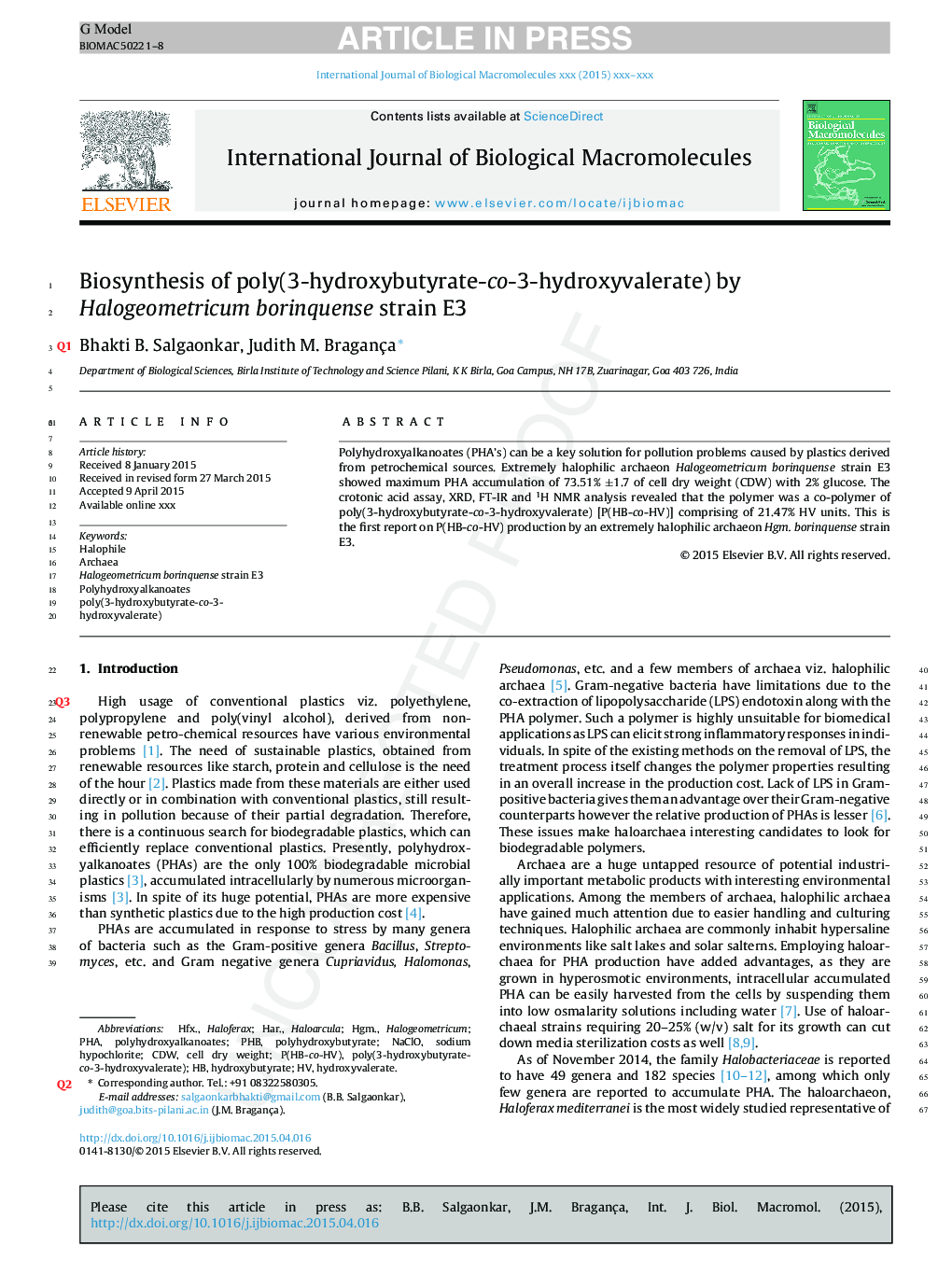| Article ID | Journal | Published Year | Pages | File Type |
|---|---|---|---|---|
| 8331392 | International Journal of Biological Macromolecules | 2015 | 8 Pages |
Abstract
Polyhydroxyalkanoates (PHA's) can be a key solution for pollution problems caused by plastics derived from petrochemical sources. Extremely halophilic archaeon Halogeometricum borinquense strain E3 showed maximum PHA accumulation of 73.51 ±1.7% (wt/wt) of cell dry weight (CDW) with 2% glucose. The crotonic acid assay, XRD, FT-IR and 1H NMR analysis revealed that the polymer was a co-polymer of poly(3-hydroxybutyrate-co-3-hydroxyvalerate) [P(HB-co-HV)] comprising of 21.47% HV units. This is the first report on P(HB-co-HV) production by an extremely halophilic archaeon Hgm. borinquense strain E3.
Keywords
Related Topics
Life Sciences
Biochemistry, Genetics and Molecular Biology
Biochemistry
Authors
Bhakti B. Salgaonkar, Judith M. Bragança,
